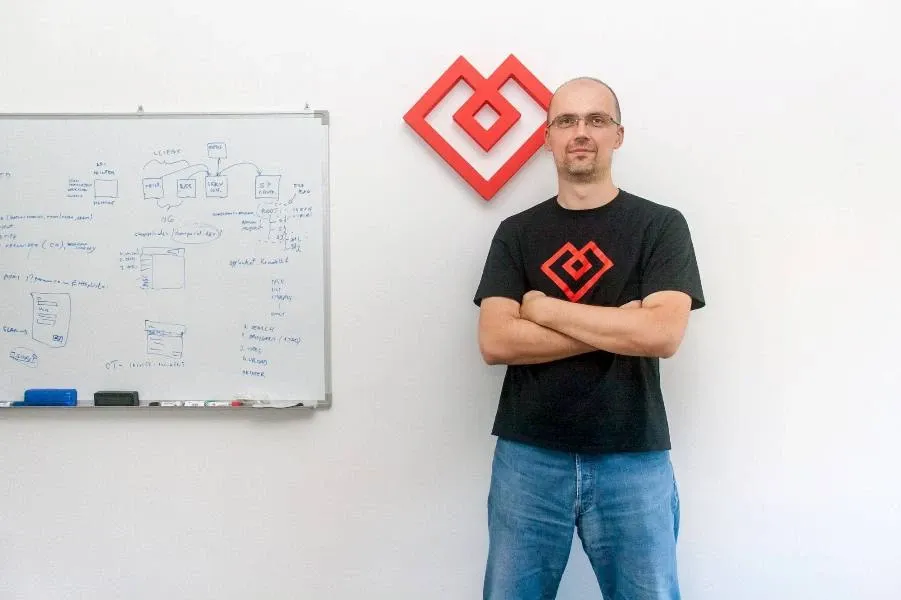ENT Appoints New Member of the Management Board
The Supervisory Board of Ericsson Nikola Tesla appointed Branka Vučemilo Elezović as a member of the Management Board of ENT.

Searching for innovative and thriving software companies in Croatia we went to the east of the country, to Osijek, where we met Denis Sušac, CEO of Mono, one of most recognized small Croatian developing companies. Sušac is company founder and is well known for his hard work and contribution in founding Osijek Software City association as well for his cooperation with J. J. Strossmayer University in Osijek in developing new curriculum and programs for students. He also contributes in events organized for innovative kids in Osijek.
Mono started in 2003. and has since grown steadily and has achieved great business results that have been recognized internationally. They have been awarded by Deloitte Technology Fast 50 in Central Europe in 2013., a prestigious annual program that honors the fastest growing Central European technology companies, based on the percentage of revenue growth over five-year period. They are also a National Champion in the organic growth category for The European Business Awards 2014/2015.
Your story is one of most interesting in Croatia. You're mostly in pure development, fast growing, refuse to leave Osijek and are getting lots of accolades. Your local recognition is actually surprising since local organizations don't understand a thing about your word and what you actually do.
For us, Osijek is an ideal place to live and work. More than 90% of our revenue is generated on the foreign markets, and our clients do not care where we are located, as long as we can provide high-quality products and services. Despite being a strictly technical team and without investing in marketing, we have been able to attract a lot of challenging projects - mainly by word of mouth. This has in turn led to good business indicators and multiple awards, resulting in increased media coverage. This way, people outside IT industry suddenly became aware that something good is happening here.
In your 13 year history you've worked on many interesting projects developing solutions for different branches, such as healthcare, pharmaceutics, government organizations and small business. Could you, please, state some of the most interesting and most challenging.
Every project has its set of challenges and is interesting in its own way. Some of our developers thrive on big, complex cloud-based enterprise environments serving millions of people, while other prefer smaller applications that solve smaller everyday problems. A lot of our work has been invested in building large scale banking, health or pharma solutions. However, we have also built social networks for divorced people, apps that deal with health insurance for pets, e-learning applications, augmented reality apps and communities for people interested in car races. Recently we have started using advanced Artificial Intelligence and Machine Learning technologies for recommended systems, bots, drones, etc.
Like many other Croatian software companies Mono is mostly based on foreign clients. Does that mean that you're too strong for local market?
We are not too big or too strong to compete on the local market, and would actually like to do more work here. However, the problem with this is that most of the significant domestic projects are done in the public sector, and usually involve some politics. We are not interested in that, as there are plenty of challenges on the global market.
You spend lots of time and energy communicating with University of Osijek helping them fguring out new student programmes. You're also quite involved in Osijek Software City association, organizing events, doing lectures etc.
It was a conscious decision on our part to put a lot of resources into building a local community. Without it we would be soon left without fresh talent and without means to efficiently cooperate with other teams. It is a hard work, but great things don't happen without it. We are frequently working with high school kids and college students, teaching them about new tools and technologies, but more importantly, sending a message that they can succeed here - in contrast of what they hear from most of the media sources. With a bit of luck, next year we will also see significant changes in the higher education curricula, as a result of several years of work with the local university. This could make a big impact on the local environment, and allow us to concentrate more on building next generation software products and services, instead of fixing gaps in the educational system.
As far as we heard you're actively looking for a new office space and finding convenient space is not easy in Osijek at all.
The availability of the office space is one of the few shortcomings of working in Osijek. As we exhausted all options of finding a rented space, we have decided to build our own building that will allow us to grow faster. This has also proved to be a challenge, as we were not able to find a suitable land - and we are not the only one with this problem. Therefore, we are in contact with the local authorities and are trying to form some sort of IT park/zone, where companies could build or rent their office spaces. This could make the cooperation within the community and towards the local university much more efficient. Things are moving very slowly, but we are hoping to see some progress before the end of this year.